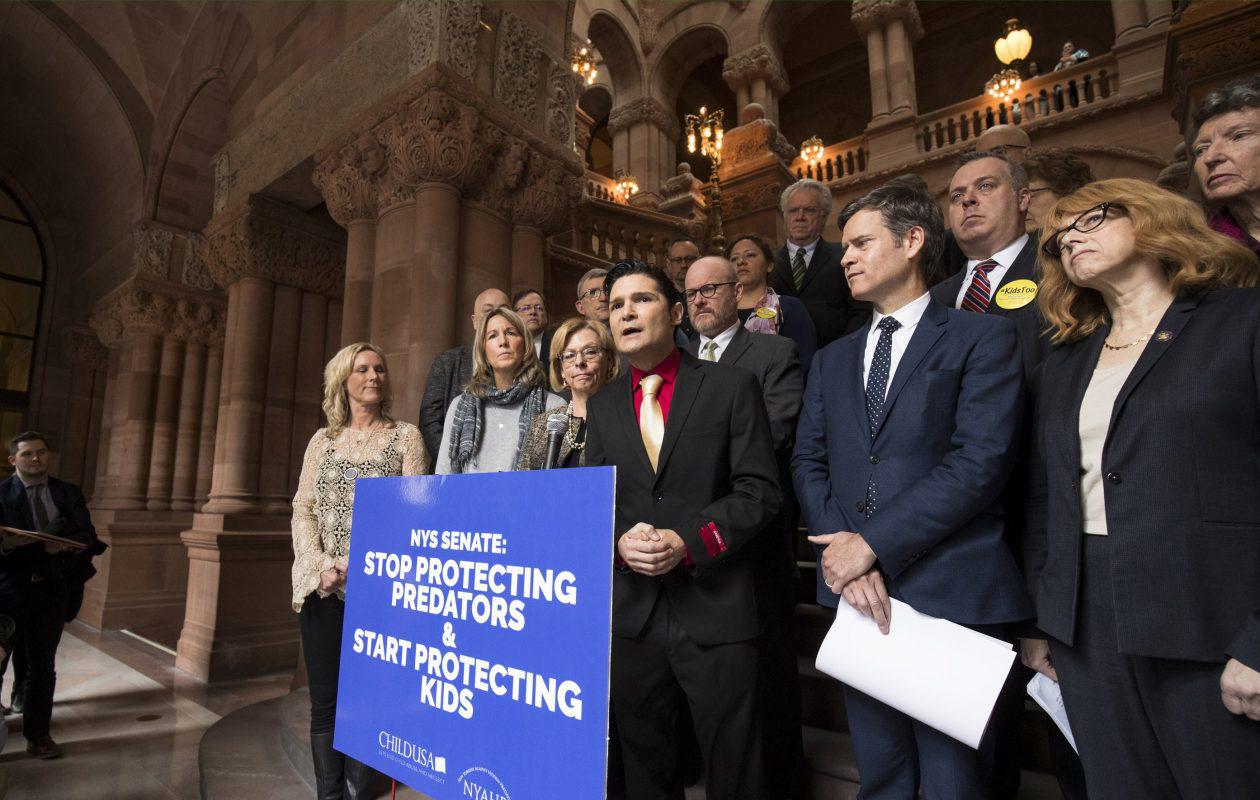|
Editorial: Child Victims Act brings some justice for those who suffered sexual abuse
Buffalo News
The Catholic Church’s bishops in New York State made the right decision to change course and back passage of the Child Victims Act. The Senate and Assembly are expected to approve the legislation on Monday that will expand the statute of limitations for child sex abuse victims and open a one-year “look-back” period for victims of any age to bring lawsuits over alleged sexual abuse. The state Catholic Conference stated its support after legislators agreed to wording that ensures the bill applies to victims of alleged abuse from public schools as well as religious and private schools. That prompts the question: Why weren’t public schools included all along? The church opposed previous versions of the bill, which were held up by the former Republican majority in the Senate. The church objected to being singled out for legal responsibility for incidents of child sexual abuse that have also taken place in other public and private institutions. Albany sponsors of the bill said that wasn’t the case, but they agreed to firm up the language to explicitly include public schools. That’s important. The point of the law isn’t to pick on the church, it is to help victims of child sexual abuse anywhere it occurred. The Child Victims Act raises the statute of limitations for civil cases brought by people who say they were sexually abused as children up until they reach the age of 55. A criminal case would be able to be filed until the survivor’s 28th birthday if the crime is a felony and 25th if it’s a misdemeanor. The “look-back” provision was a major sticking point for opponents of previous iterations of the bill. Institutions including the Catholic Church, some yeshivas, the Boy Scouts and the insurance industry lobbied hard against it, as it opens the possibility of financial awards that could be ruinous to some institutions. But, as supporters have correctly noted, the trauma of sex abuse often makes it difficult for victims to come forward until years later. The Diocese of Buffalo has been anticipating financial fallout from the sex abuse scandals that consumed the diocese throughout 2018. Bishop Richard J. Malone announced in April that he would be selling his own residence, a mansion on Oakland Place that’s been home to Buffalo bishops since 1952. Malone said the decision was made “in the face of this crisis of reaching out to victims and the need really to have strong resources” to compensate clergy abuse victims. Though Malone wasn’t present here when dozens of incidents of child sex abuse allegedly took place years ago, his public displays of contrition have been at odds with the cover-up of names of the accused. Records leaked to the news media last year showed Malone withheld the names of more than 60 credibly accused priests from the public. Some prominent public figures, as well as this newspaper, have called on the bishop to resign. Passage of the Child Victims Act won’t be enough to undo the damage to the hundreds of victims of sex abuse, from clergy, teachers or anyone else who oversees children, but it sends a message that their voices won’t be smothered by unreasonable legal deadlines.
|
.
Any original material on these pages is copyright © BishopAccountability.org 2004. Reproduce freely with attribution.
